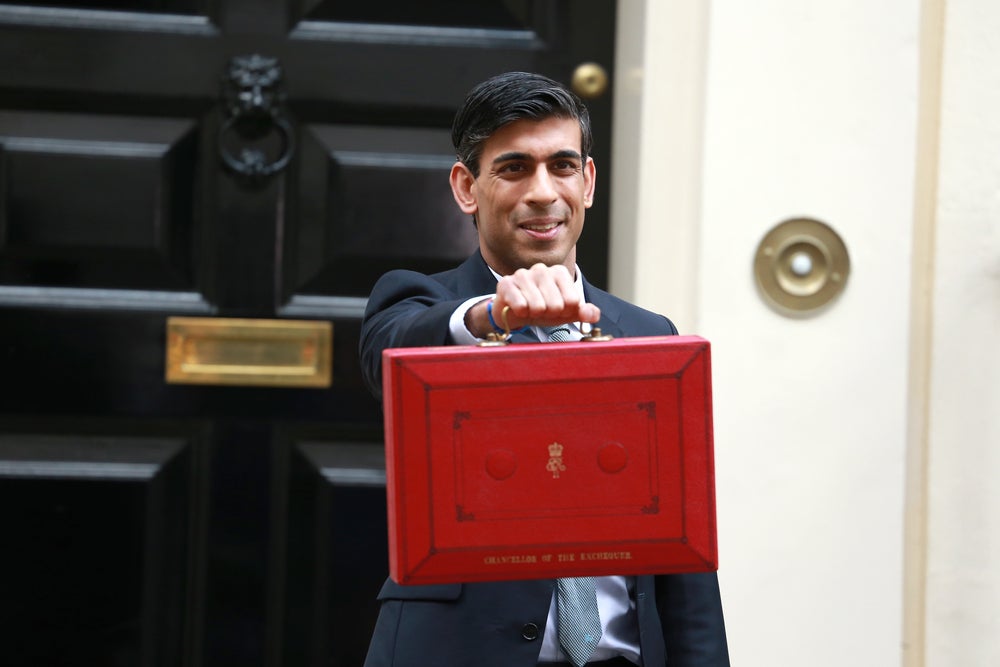
UK Chancellor of the Exchequer Rishi Sunak announced his summer economic plan to help the country revitalise after the coronavirus pandemic. Business grants and stamp duty relief is set to have an impact on private banking firms and investments. Patrick Brusnahan asks the experts for their opinions
Tom Brown, managing director of real estate, Ingenious
We welcome the announcement of SDLT relief to take effect immediately until the end of March 2021, it will provide a much needed boost for individuals and families looking to move following an extended period in lockdown. It is especially pleasing that the relief applies across the whole market, not just to first time buyers, and means that everyone will be able to benefit enabling people to relocate to areas in connection with work, for example, more cost effectively.
Those purchasing a property over the maximum relief threshold of £500,000 ($625,777) will save £15,000 in transaction costs and someone buying at a UK average price of £250,000 will save £2,500, paying no SDLT at all. We expect this to help sustain the early momentum we have seen in sales recovery in the residential market since it reopened. This is particularly supportive for the UK’s mid-market developments, an area of the market where Ingenious focuses its investment strategy.
Andrew Dixon, head of wealth planning, Kleinwort Hambros
The Chancellor’s announcements will not be the last we will hear on the matter. The furlough scheme provided the breathing space, but we have seen companies plan major job cuts and restructuring alongside a plummet in vacancies. Any effort to control mass unemployment is welcome, but cash injections like this do not necessary place money back into the wider economy and government would need to relax social distancing measures or provide continued customised help to make some sectors viable.
There is a sense of inevitability that in the long term taxes will increase. In the run up to the Budget in March there was discussion of a wealth tax that never materialised and Boris Johnson used Prime Ministers Questions to suggest Labour’s support of a tax. However, it will be interesting to see whether the government’s preferred method of recouping funds will target the wealthy and tie into the wider levelling up agenda.
The effectiveness of targeting the wealthy is a matter for debate as there is no clear evidence such a strategy has been successful in other countries that have adopted such a method. With income tax, national insurance and VAT accounting for the majority of tax revenues I suspect middle earners may feel a disproportionate effect of future tax raising policy. But while trying to get the economy moving in the near-term, increasing taxes over the next year or so seems counterproductive, but we know it is coming.
How well do you really know your competitors?
Access the most comprehensive Company Profiles on the market, powered by GlobalData. Save hours of research. Gain competitive edge.

Thank you!
Your download email will arrive shortly
Not ready to buy yet? Download a free sample
We are confident about the unique quality of our Company Profiles. However, we want you to make the most beneficial decision for your business, so we offer a free sample that you can download by submitting the below form
By GlobalDataZara Banday, partner & head of residential property, Slater Heelis
It’s great to see the market stimulated by central government through a stamp duty holiday. This move will provide a real shot in the arm for the market, which seems to have already bounced back to pre-lockdown sales levels, and really help get the economy moving again.
We anticipate even more buyers moving into the market, but stress the importance of a trusted and experienced conveyancer in the rush to secure a new home, as the process is made easy.
Buyers budgets will now go further allowing them to upgrade to larger properties, with more outdoor space and even an extra room for home working. The stamp duty on a home worth £500,000 can cost as much as £50,000, and this will also provide buyers with extra funds to spend on furnishing and home improvements.
Daniele Antonucci, chief economist & macro strategist, Quintet Private Bank
The Chancellor has revealed a number of supportive measures – from stamp duty and VAT cuts to job schemes – for workers and businesses across the UK.
Measures supporting sectors that are big employers, along with those that have been disproportionately affected by the crisis, are the best way to get the “biggest bang for your buck”. If not an outright boost, all this should at least engineer a most needed support to key parts of the economy ranging from housing and construction to hospitality and tourism.
However, many of these measures are temporary in order to mitigate the impact on public finances. Unless self-sustained growth comes back in the coming months, and without a lasting solution yet to the health crisis we face, we’ll need to see further long-term support in the upcoming Budget.
Katharine Arthur, partner, haysmacintyre
The Chancellor’s statement, while hugely positive for boosting jobs and hopefully the economy, means the Autumn Budget will surely include hefty tax increases to begin to make up what was already an eye-watering deficit.
The ‘Eat Out to Help Out’ voucher scheme is certainly an interesting one, but the true value will be measured in how effective the administration is and how quickly businesses will actually receive the money from the Government. Similarly, with the JRS bonus, the devil will be in the detailed conditions. On the VAT reductions, it is worth noting that we have been given an end date of January 12th next year. Other countries have not announced similar timeframes. Further, on a practical note, we should expect hotels accepting bookings to defer taking deposits until they can take advantage of the lower rate of VAT from the 15th August.
Colin Fitzgerald, distribution director – group protection, Legal & General
Legal & General welcomes today’s announcement by Chancellor Rishi Sunak of a package of initiatives to help protect and create jobs for 16-24 year olds, including a £1,000 cash ‘bonus’ for firms hiring young people into traineeship programmes from September. Business recovery now rests on having engaged and motivated employees. This, in turn, will help improve the lives of everyone in the UK: creating real jobs and a better infrastructure to help overcome the current economic catastrophe and come out the other side a more responsible and sustainable society.
Structured training programmes will go a long way towards attracting the right candidates to the right job in the right company, and will no doubt prove particularly attractive to more cash-strapped SMEs. But it’s also important to remember that training and development should form part of a wider employee wellbeing programme: a programme built upon a clearly articulated purpose; with reward and benefits programme at its heart; designed and communicated in line with employee needs; and hardwired to business goals. The pandemic hasn’t changed any of this. What it has done – especially during lockdown – is made leaders realise the crucial importance of employee wellbeing to productivity and profitability.
Employees now entering the workforce for the first time place a premium on how companies care for them. How employers respond to wellbeing issues like stress, burnout and uncertainty will be a hallmark of their attitude towards responsibility and sustainability. Yet while 61% of people trust their employer to look after their wellbeing, only 29% of HR leadership have a health and wellbeing strategy in place.
There’s a common misconception that that wellbeing programmes are too costly, especially for SMEs. But they’re only too costly where benefits are ill thought through and not communicated well.
It’s telling that SMEs (50-249 employees) pay an average £1,078 per employee per year on one-off rewards, such as celebrations and vouchers.2 When, for around £650 per employee per year, they could have life insurance, income protection and critical illness cover.3 Such a package – communicated in a personalised and targeted way – would not only afford the business and its people financial peace of mind, but would also give employees the tools they need to keep happy and healthy: for example, immediate-access to legal, financial, physical and emotional information and support via Employee Assistance Programmes.
This might also extend to mental health related resources, training and best practice to help reduce stigma and support employees to thrive at work, such as that provided by Legal & General’s long-running Not A Red Card initiative. All of this would also obviously bring to the employer a competitive advantage in terms of recruitment, retention and engagement.
Our future workforce is searching for a genuine shared purpose and the smart organisations – those that hang on to employee wellbeing lessons learnt during lockdown – will be the winners.
Nigel Green, chief executive and founder, deVere Group,
The Chancellor Rishi Sunak has set out a series of extra measures to help kick-start the UK economy, whilst revealing that the Treasury has allocated £188bn of economy-bolstering measures since the start of the Covid-19 pandemic.
He has galvanised his position as Santa Sunak and has, rightly, been praised for his handling of the economy; he has done an impressive job.
But what happens when, in the Budget in November, he is forced into becoming Scrooge Sunak to pay for his record-beating level of support measures.
Many higher earners and investors will now be looking forward and thinking that the result of Sunak’s largesse, inevitably, means higher taxes to help plug the enormous £300bn blackhole in government coffers.
Taxes on income contribute the highest proportion of the government’s tax-take, meaning even a small change would have a disproportionately positive impact for the Treasury.
But they will not want to be hitting household incomes too much at this stage, as it will move to raise taxes in the medium to longer-term in order to indicate to financial markets that they are intent on controlling the deficit.
There is also the potential of the oft-mooted one-off or continual tax on personal wealth.
This can all be expected to spook higher earners into considering the available international financial planning options.
It is almost inevitable that pension tax relief will be a target as the government looks to plug gaps in November’s Budget.
As it’s likely the pension contribution relief for those on higher incomes will be reduced, an increasing number of people are now mulling making a larger one-off contribution before the Budget, in order to benefit from the higher tax relief whilst they still can.
We’re in highly unusual times economically and taxes will need to be raised to fund the gap. Those who will be likely expected to carry the burden can be expected to be exploring all the legitimate financial planning options, including international ones, to safeguard their wealth.
Eric Leenders, managing director of personal finance, UK Finance
The chancellor’s announcement on stamp duty should give a welcome boost to the housing market and in turn have positive knock-on effects for the wider economy.
This measure designed to re-boot the housing market builds on the wide package of support put in place by mortgage lenders, working with the regulator and HM Treasury, to help customers through these tough times.
The industry has a clear plan to help homeowners whatever their financial situation and is committed to providing ongoing support to those customers who need it.
Giles Coghlan, Chief Currency Analyst, HYCM
Investors seem to have welcomed Chancellor Sunak’s latest economic package positively. Since opening on Monday, the FTSE has been making small gains off the back of news of various economic stimuli, including the potential stamp duty holiday. House builders have been leading the FTSE surge and this looks likely to continue with the Chancellor confirming the tax holiday.
Based on how the markets are reacting, Chancellor Sunak’s so-called “mini budget” might provide the assurances needed to kickstart the UK’s post-pandemic recovery, at least in the short-term.
Investor confidence will be vital to the economic recovery from COVID-19, which is why today’s announcement comes at an ideal time. The financial markets are yearning for positive news, and this week we have been seeing the world’s major indices rallying in the hope that the pandemic has been brought under control.
The bigger challenge, however, is ensuring this boost in investor confidence is effectively maintained over the coming months. This is easier said than done. With the Q2 earnings season underway, the markets will be seeing how badly earnings have been impacted by the COVID-19 lockdowns. The worry at the moment for the UK is that the ever increasing debt pile becomes another burden for the UK to manage alongside ongoing Brexit concerns.







